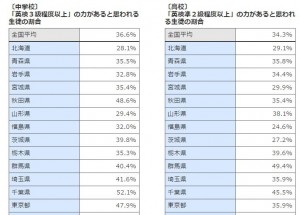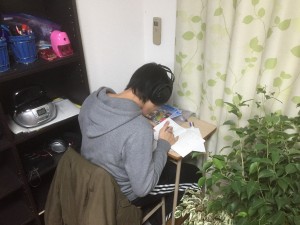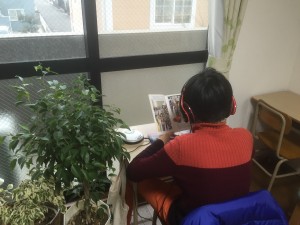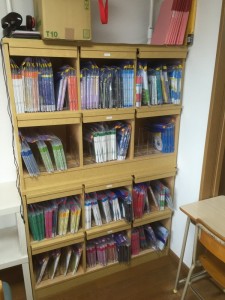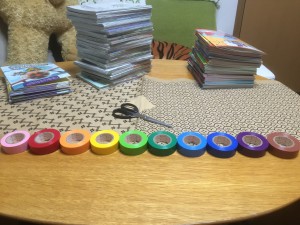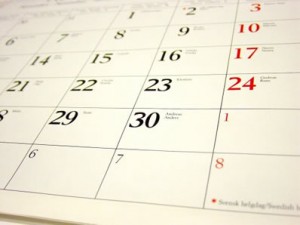Japanese High School Students’ English
Unsurprisingly similar to junior high school students’ English
Following on from the report on Japanese junior high school student English proficiency, I saw this article today about high school students (also this better article with the percentages for each prefecture in Japanese). Miyagi sadly is below the national average for both junior and senior high school.
I don’t think the results are very surprising.
I do wish they would use better tests to set targets, as in my experience it is possible to pass Eiken with relatively poor English skills if you are lucky or prepare for the test format. I would prefer to see a test with separate scores for skills rather than the catch-all pass/fail STEP Eiken.
Also the root of the problem can be seen here: poor English teacher language proficiency. It is incredible, given how much effort and resources Japan puts into English education, that people with insufficient practical language ability are employed to teach it. It should be a huge priority to encourage and help English teachers in junior and senior high school improve their language skills, and to make practical language proficiency a firm requirement when hiring new English teachers.
And of course, everyone should be doing extensive reading and listening 😉
10 Ways to Prevent Aging/Burnout
A nice cheery topic for you all today
It’s been a tough ten years.
It’s been a wonderful ten years as well in many ways, but working two or three jobs, six or seven days a week for years on end takes its toll.
Some days I just want to give up.
A few times I have felt completely crushed and unable to teach.
Burnout is real, and is a major danger to teachers as teaching is one of those jobs that you can’t stop at 5pm and leave behind at the office.
Right now I am enjoying myself again, but it was a close thing a few times.
As far as I can tell, there are a few ways to reduce the chance of burnout. Coincidentally, all of them are likely to make you happier too 🙂
10 Ways to Reduce the Chance of Burnout
- Autonomy -the more control you have over your work, the more you will enjoy it
- Collaboration -working together with others on projects
- Comrades -working with people you respect who are easy to work with
- Growth -your job changes as you get more experienced or your interests evolve
- Health -exercise and good food
- Purpose -if you believe in what you are doing it is more satisfying
- Rest -having some time off regularly, preferably one or two days a week
- Results -seeing results makes it all worth it
- Rewards -financial or otherwise, being rewarded for your efforts makes a big difference
- Sleep -getting enough every day, not just recharging at the weekend
One of my major goals this year is to work on these for myself. There is no point in succeeding at work if it destroys your enjoyment of life.
How about you? Are you heading for burnout?
Priorities
It’s so easy to get pulled off course
I thought I had my priorities fairly sorted out. You may have seen my now page. I was really enthusiastic about Derek Sivers’ hell yeah or no manifesto.
Normally this works pretty well, but unexpected opportunities can put you on tilt.
Last week I had one of those opportunities. I was offered a chance to work on a prestigious project. It didn’t align with my goals 100%, but paid well and might have led to further similar projects.
This week I am planning to turn it down. If I took it it would prevent me from focusing on the really important things.
It’s not hard to say no to boring or unpleasant work. It is really hard to say no to interesting work with lots of potential.
But maybe that’s the key to success.
Starting a Reading Program from Scratch
Do This (thanks, Derek Sivers)
I received an email last week. The writer (thanks for the inspiration Brett) asked for advice on how to start a reading program from scratch. No current resources, tiny budget.
What readers should be bought first? What else needs to happen?
This post is the start of an answer.
What is the purpose of the reading program?
You will need to think about the following questions. What is the reading program for?
- Is it to complement existing classes? Create new classes?
- How old are the students?
- What level of English and reading do the students have?
- How much time and money are you willing to put in?
What activities will be done?
The first question is will you use class time for reading? I strongly suggest you do so. In my experience, ER done only outside of class has a low uptake and most students do not do it regularly.
The next question is will students listen as well as read? For beginners and students below intermediate level (around YL 1.0), I strongly recommend listening while reading. It makes a huge difference to student progress and enjoyment.
Finally, will you do shadowing activities? Shadoku, shadowing tadoku (ER) is a very powerful technique, especially at the lower levels. Yuko Suzuki introduced me to the idea, and I will be doing a post soon describing the technique.
What books should be bought first?
With a limited budget, you should buy the following books:
Beginner level:
- Oxford Reading Tree core stories (probably the best materials)
- Story Street (unfortunately out of print now)
Lower-intermediate (JHS3, SHS beginners):
- Foundations Reading Library
- Building Blocks Library (level 4+ only)
- Story Street (level 4+ only, but out of print now)
Make sure you also get the CDs so that students can listen and read, listen only, and do shadowing activities.
What admin is necessary?
You will need to store books. I recommend either having each single book with a CD in the back (use soft CD cases from the 100 yen shop, taped into the back cover) or group the books in sets using ziploc bags (one set with CD per bag). Both approaches work.
Student should keep track of their reading. Counting the number of books is the easiest way, but for a long-term program I think tracking words is more useful. You can find word counts on the books, in the Tadoku Kanzen Guide, or online.
You’ll need to think about how to lend books to students. We use the honour system, but keeping track will reduce book losses (but take time). It’s a decision you will have to make in the context of your program.
Any questions?
Leave a comment below.
New (Academic) Year’s Resolutions
A plan for the 2016 academic year
Here in Japan the academic year runs from April until March, so we are coming up to the start of the 2016 one.
I have a few projects and plans:
- New ‘high-level’ classes at Tohoku University
From this year the university has introduced new high-level classes that students can choose to join instead of their regular English classes. This is a new system so we are not sure what it is going to look like. Assuming I get some students (it’s not certain, particularly for my Friday evening class!) I will be teaching advanced extensive reading classes and an advanced discussion class on the topic of personal finance. Very much looking forward to both of these. - PELLT (practical English language learning and teaching) website
This is a new website aimed at bringing together all our content, from self-produced work such as the ER@TU manual and the about-to-be-released PDR discussion method handbook, to curated links for learners and teachers. I’m very excited about PELLT and look forward to sharing more as it develops. - A few writing projects that I can’t talk about yet 🙂
I’ll post more about these if progress happens (certainly not a sure thing based on looking at my to-do list). - More on sendaiben.org and retirejapan.info
I’m planning to write more regularly for my two remaining blogs. Please share any content you enjoyed on social media -it really helps me to reach more people. - Year two at the Cambridge Academy
The other teachers at Cambridge just reorganized the reading classroom and it looks great. Looking forward to seeing the program develop as it goes into its second year. I’m particularly interested in how students progress -having students going into the second year of the program is uncharted territory. - Doing less
I am hoping to cut down on the number of things I do, so I can put more time into the remaining ones. If all goes to plan I’ll be teaching fewer classes and taking on fewer projects. This is something I struggle with but after fifteen years working flat out I need to find a bit of balance in my life.
How about you? Anything interesting on the horizon?
